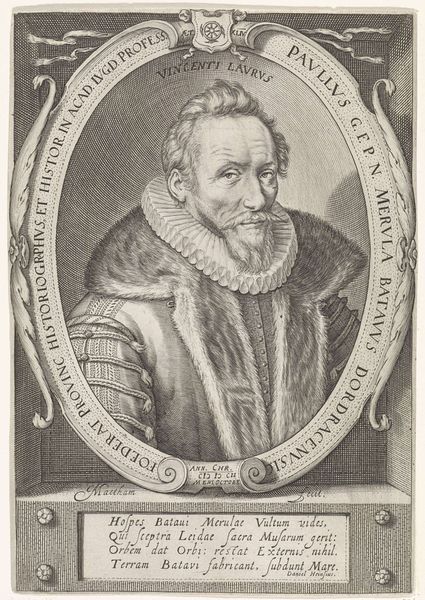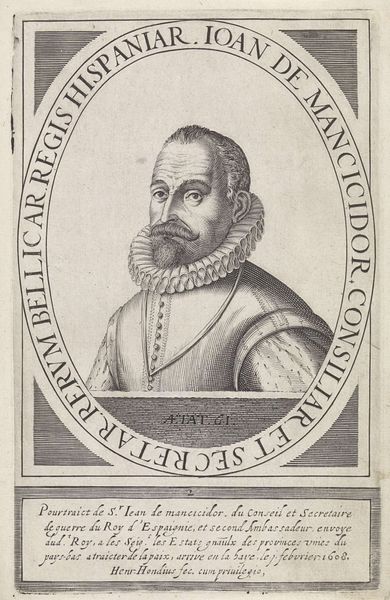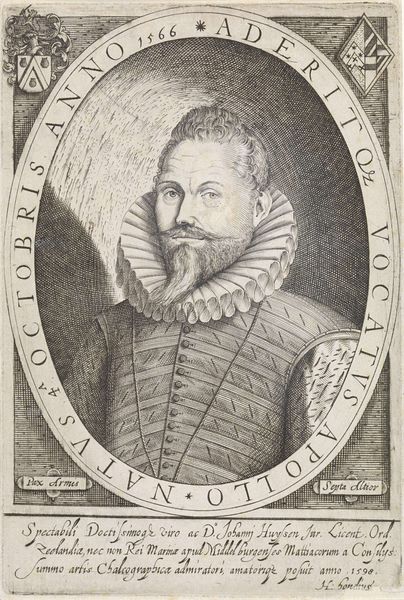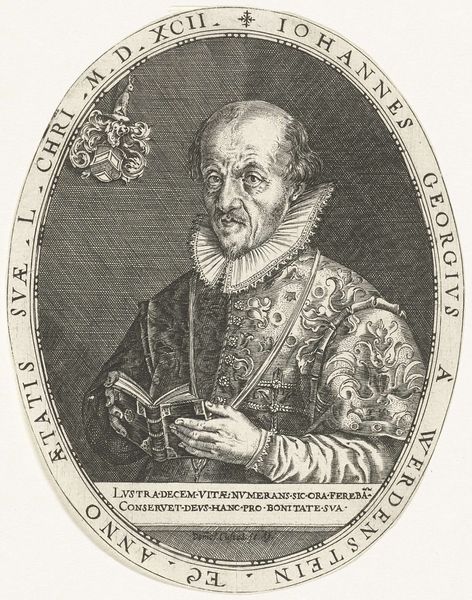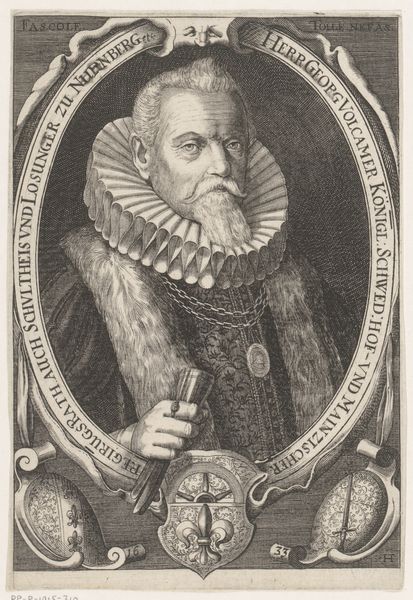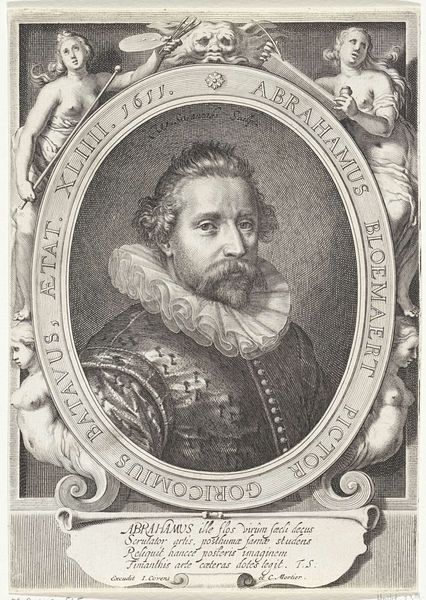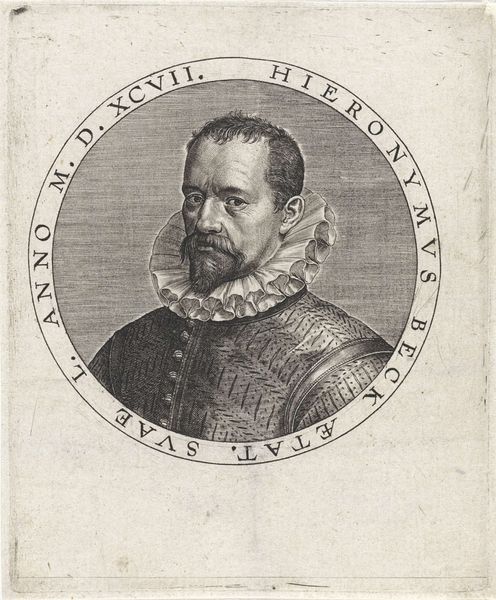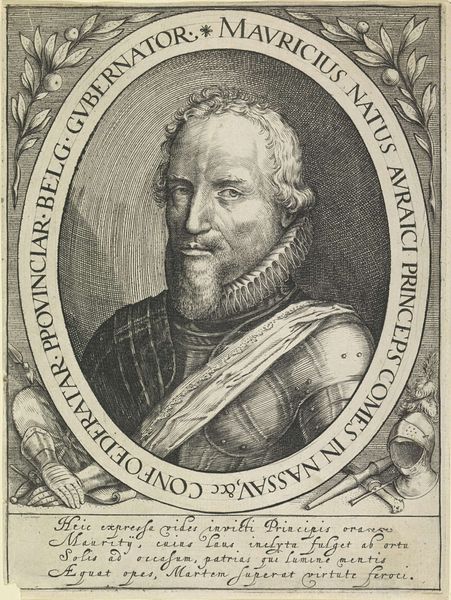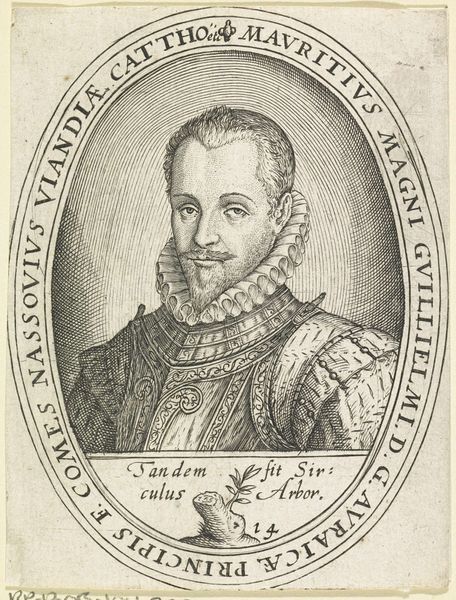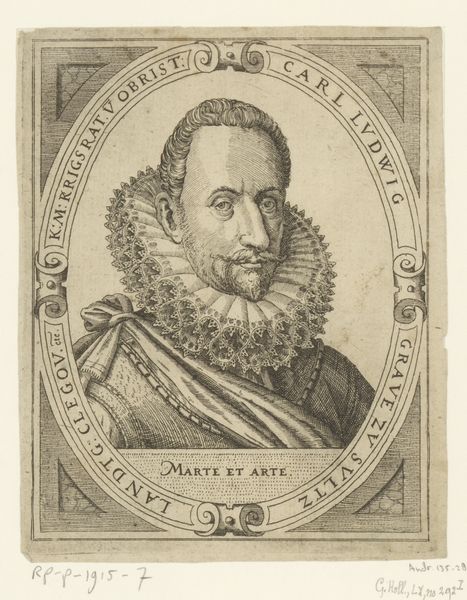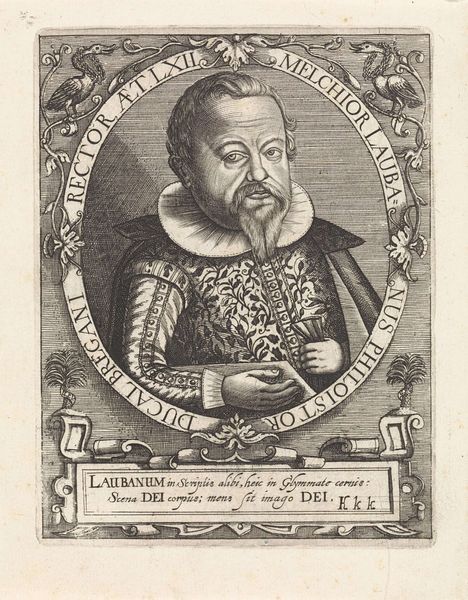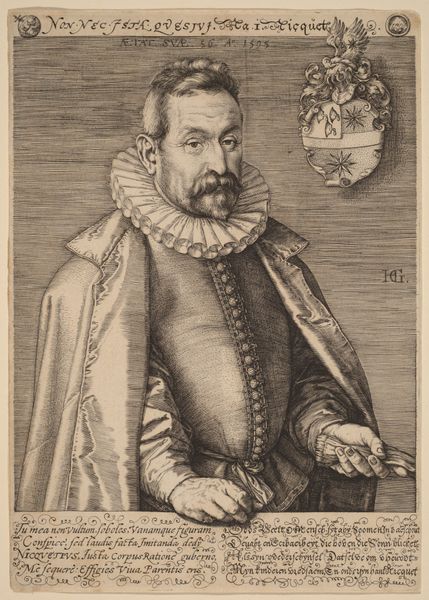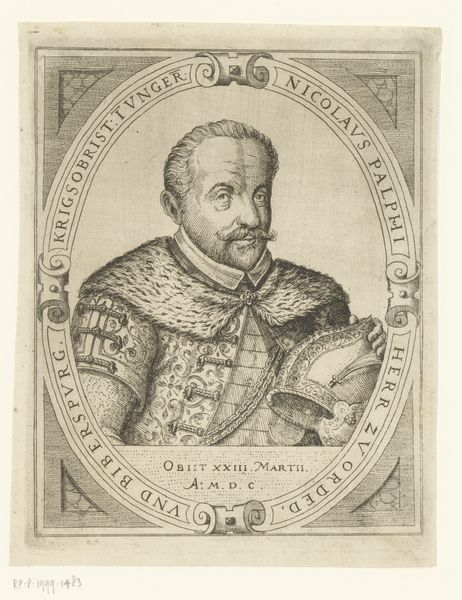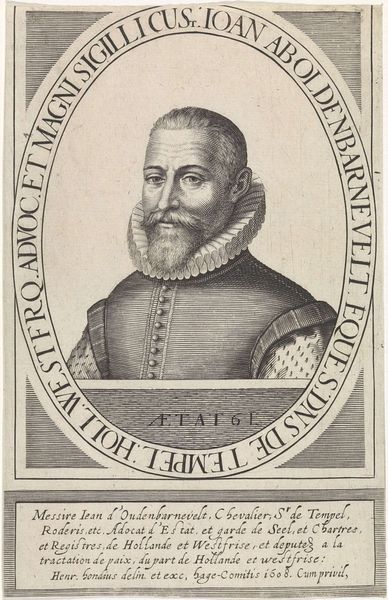
print, engraving
# print
#
11_renaissance
#
engraving
Dimensions: height 156 mm, width 123 mm
Copyright: Rijks Museum: Open Domain
Editor: Here we have Hans Troschel's engraving, "Portret van Hieronymus Kreß von Kressenstein", made sometime between 1596 and 1628. He looks rather imposing, doesn't he? All that armor! It definitely conveys a sense of power, but I’m curious about the context. What strikes you most when you look at this portrait? Curator: It’s the meticulously detailed ruff that grabs my eye first. So stiff and ornate, like a fragile cage around the face. It speaks volumes about the man’s status, wealth and the era's fashion, doesn't it? I wonder, though, is he really at ease? He’s adorned with symbols of authority and the engraving style reinforces the subject's formality. Tell me, does the direct gaze suggest vulnerability or strength to you? Editor: I see your point. The ruff is almost comical in its extravagance, a gilded cage indeed. His gaze… I think there's a hint of weariness there, maybe even a touch of vulnerability, masked by the rigid posture and armor. But that inscription… it's not just a portrait, it's a memorial! He died in 1596. Curator: Exactly! Troschel immortalized him in this engraving after his death. Knowing that detail shifts our perspective, doesn't it? Now, every line etched becomes a deliberate act of remembrance, perhaps even a slight idealization. A warrior, a public servant… but also a man being mourned. Editor: That reframes everything. The stiffness isn't just formality; it’s the stillness of death, being remembered with great honour, I imagine. I originally thought the image was a reflection of authority, but I've found out the impact of cultural background, symbolism and historical context and gained much insight. Curator: Absolutely! And hopefully, by contemplating art of this sort, we all learn a bit more about the long gone and ourselves too.
Comments
No comments
Be the first to comment and join the conversation on the ultimate creative platform.
